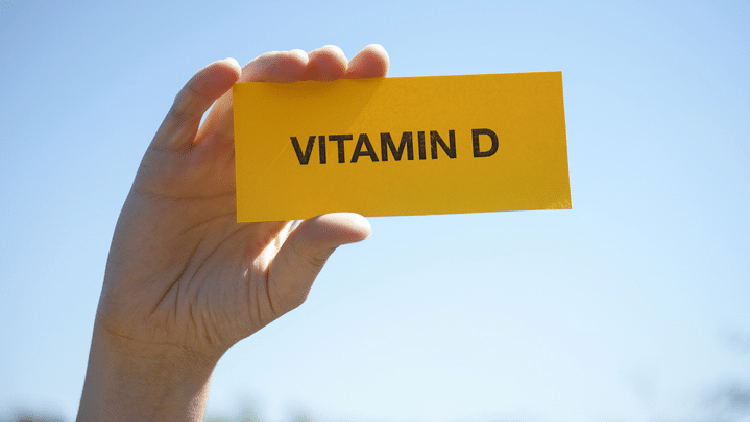Vitamin D is often called the ‘sunshine vitamin’ as it is produced naturally in your skin in response to exposure to sunlight. You can also get vitamin D from certain foods and supplements. Maintaining healthy levels of vitamin D is essential for strong and healthy bones as it helps to regulate calcium and phosphorous absorption in the body. It is also important for facilitating healthy immune function to help you fight off diseases.
Deficiency in vitamin D may cause:
- Muscles aches or weakness
- Bone aches
- Skeletal deformities in children (rickets)
- Soft bones (osteomalacia)
- Fragile bones (osteoporosis)
- Increased risk of developing other health problems such as cardiovascular disease, cancer, cognitive impairment in older adults and severe asthma in children
Who is most at risk of developing vitamin D deficiency?
- People who cover their body for religious or cultural reasons
- People who spend most of their time indoors
- People who avoid the sun for skin protection or other reasons
- People with darker pigment
- People who are obese
- People who have a health condition that affects vitamin D absorption from their diet
- People who take a medication that breaks down vitamin D
How can I get enough vitamin D?
Sun Exposure
Sun exposure is the most effective way to obtain enough vitamin D. However, too many people believe you cannot get enough vitamin D while wearing sunscreen or practicing other sun-safe behaviours such as avoiding the sun during the middle of the day and wearing a hat. With summer just around the corner, we want to be clear that studies have never shown wearing sunscreen daily leads to vitamin D deficiency. In fact, people who wear sunscreen every day maintain adequate levels of vitamin D while reducing their risk of premature ageing and skin cancer. If you have not been regularly applying sunscreen, we recommend regular mole and skin cancer body checks with your GP.
During the summer, 10-15 minutes of morning or afternoon sun should provide adequate vitamin D production in the skin. Being active while outside can also boost vitamin D levels.
Diet
Very few foods naturally contain vitamin D, mainly fatty fish such as salmon, mackerel and herring. Eggs and mushrooms also contain vitamin D. In Australia, many foods are fortified with vitamin D such as margarine, bread, cereals and alternative milks. If recommended by your doctor, you can also take supplements containing vitamin D. You can also speak with a dietitian if you’re looking for practical advice and a tailored nutritional plan.
How is vitamin D deficiency diagnosed?
If you feel you are at risk of a vitamin D deficiency, talk to your doctor about getting tested. It can be diagnosed with a simple blood test. If a deficiency is found, it can be treated with increased sun exposure, increased calcium in your diet, increased exercise and supplementation if required.
To discuss vitamin D with one of our doctors, book online or call reception on (07) 3852 4878.
The information in this article was adapted from:
HealthDirect: Foods high in vitamin D
HealthDirect: Vitamin D deficiency
Skin Cancer Foundation: Sun protection and vitamin D
Vitamin D: the “sunshine vitamin”
This article was written by April Stevens BSc. MD student.
14th November 2021.

